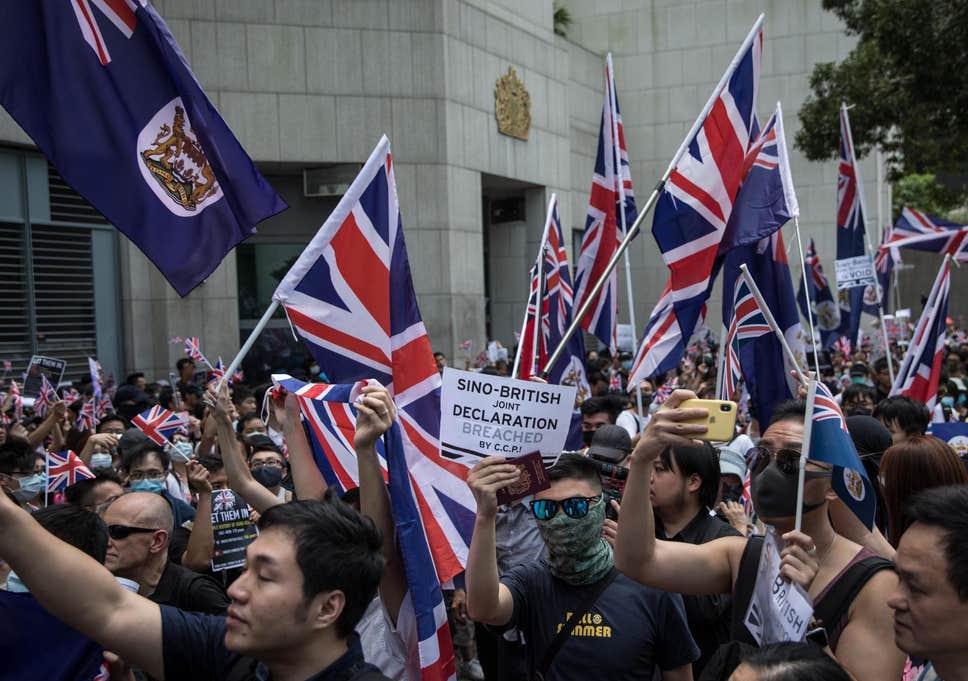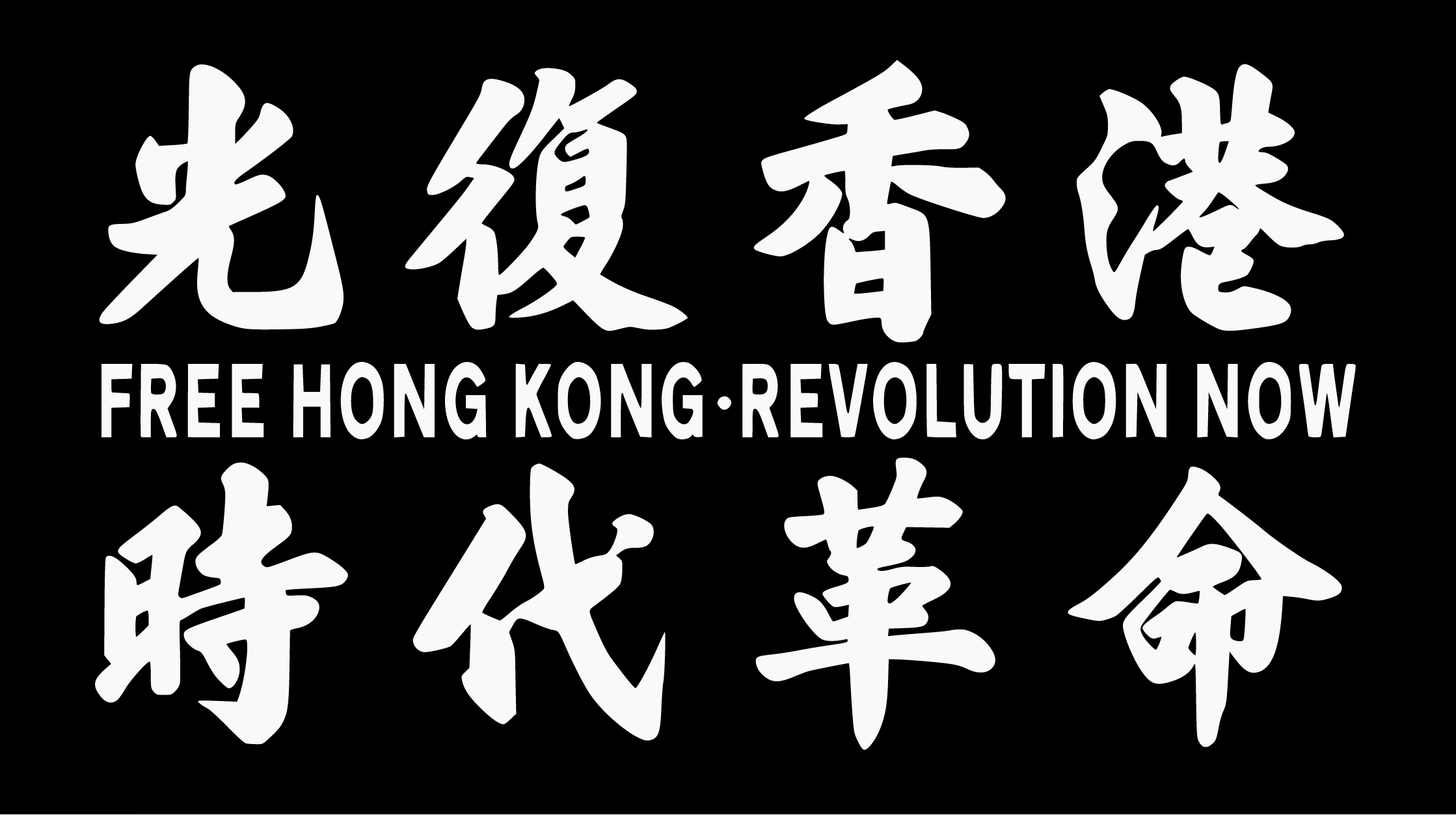Five Demands, Two Systems, One Hong Kong: The Story Behind the 2019-20 Protests

Featured image: Some protestors have romanticized Hong Kong’s British past and have taken its colonial flag to the streets. One protestor displays a sign stating, “Sino-British Joint Declaration breached by CCP!” The 1984 declaration established the principle of One County, Two Systems.
By Frank Lukens
Read the pdf of the article here
It has not been an easy year for Hong Kong. Since March 2019, protestors have covered the streets as police officers fired tear gas at them. Thousands of demonstrators have been injured, and thousands more arrested. As the entire world focused on the chaos ensuing in Hong Kong, Hongkongers became even more focused on seeking what they truly want—democracy, liberalism, and human rights. What began as a protest in reaction to a controversial bill evolved into a movement that has strengthened Hongkongers’ desire for freedom in their unique home with a special identity.
In order to understand what has led to the ongoing protests, it’s important to illustrate Hong Kong’s colonial past. Yale senior Hana Davis, a Hong Kong native, underscored the importance of history to what is currently happening in her beloved home. “Hong Kong was given as a concession to the United Kingdom in 1842 after the Opium War, followed by the 99-year lease of surrounding territory in 1898,” Davis tells the Globalist, giving credit to the U.K. for building up a fishing village into the skyscraper-filled, global trading hub that Hong Kong is today.
Along with their language, the British encouraged human rights, liberalism, and civic freedoms that Hong Kong cherishes, especially through this turbulent time in its history. Furthermore, the British authored the Hong Kong Constitution, known as the Basic Law, which outlines the “One Country, Two Systems” policy that has governed Hong Kong since 1997, when the city was handed over—as if it were a prize—from Britain to China. According to Davis, the “One Country, Two Systems” structure gives Hong Kong the western, capitalistic institutions—including the freedom of assembly—introduced during colonial rule that neighboring, socialist People’s Republic of China does not give to its citizens.

It is Hong Kong’s unique identity fostered over nearly two centuries that is currently at stake. According to Yale sophomore Jamie Chan, also a Hong Kong native, much of the controversy behind the ongoing protests starts from an extradition bill proposed last February by the Hong Kong government. This bill would permit the transfer of criminal fugitives who are wanted in mainland China, which is currently not included in the extradition law set up after British rule. Chan notes that “[the potential for China to have extradition privileges] specifically raises political concerns, because China is known for abducting people who have diverging political views from the government,” mentioning a controversy in 2015 when Hong Kong booksellers disappeared in mainland China for selling banned books there.
However, both Chan and Davis tell the Globalist that the heavily youth-driven protests have moved beyond simply wanting to withdraw the extradition bill and toward a greater discussion of Hong Kong’s identity and what it means to be a “Hongkonger.” Pointing to a black sticker on the back of her phone case, Chan reads me what is printed in bold, white Chinese characters and capitalized English words: “FREE HONG KONG—REVOLUTION NOW.” This cry for freedom is manifested in Five Demands, according to Davis: “(1) Complete withdrawal of the extradition bill, (2) Re-characterization of the protests to not be riots, (3) Exoneration of arrested protesters, (4) An independent investigation into police brutality, and (5) Universal suffrage.”
Considering the intensifying backlash against a potential increase in Chinese control over Hong Kong, full sovereignty from the People’s Republic of China is not on the list of Five Demands. “For the most part, independence is not something people are searching for. People want democracy, liberalism, and human rights fulfilled,” Davis tells the Globalist. “No one is asking for something that is not already promised.” Thus, what is at stake in Hong Kong’s protests is not necessarily independence from a colonial ruler, as most postcolonial histories have proceeded. Rather, Hongkongers are searching for what they were promised when the Basic Law was put into effect twenty-two years ago—the freedom to be Hongkongers neither in Britain nor in China, but in Hong Kong.
Frank Lukens is a sophomore in Ezra Stiles College studying History. He can be contacted at frank.lukens@yale.edu.